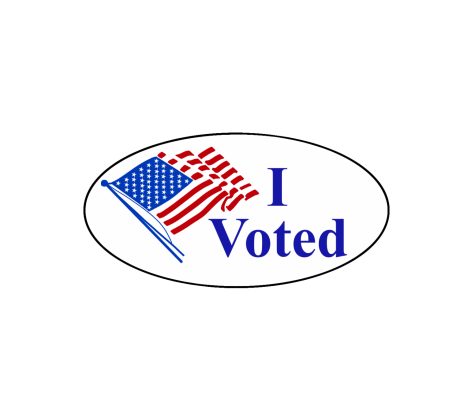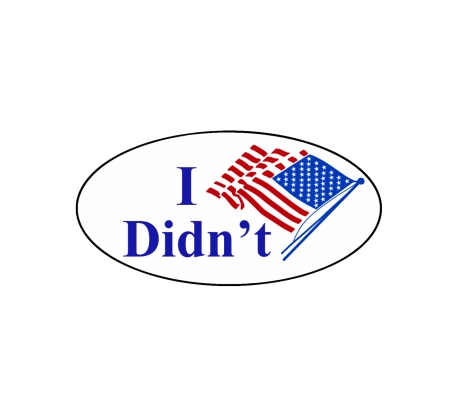Are You Obligated to Vote?
After the Primaries, some voters' preferred Presidential candidate will no longer be in the running. At this point, they will face the dilemma: to vote, or not to vote?
March 20, 2020
Yes, you do have an obligation to vote:
Voting has always been important to my family. My grandparents taught my mom that voting was her civic duty and honor, and that’s what my mom taught me. But in today’s political climate, people seem to disregard the importance of their vote and choose to abstain from voting altogether when their candidate of choice drops out.
To me, that mentality is not only impractical, but misguided.
Now, I want to be clear about one thing. No one should ever be shamed for their decision to vote or not to vote. Whether or not someone wants to vote is up to them, and it’s not my place to judge. And really, vote-shaming accomplishes nothing besides alienating potential voters, and perhaps dissuading them from voting again in the future.

But that being said, I strongly believe that you should vote, even if your preferred candidate drops out of the race. This is how the people of the United States pick a new leader. Why shouldn’t each and every capable American be a part of that process?
By abstaining from voting, you’re not making a statement. You’re choosing to stay silent. People don’t go out to vote for all sorts of reasons; political dissatisfaction being one of many possibilities. For all the government knows, you could be sick, working or just plain lazy. Politicians don’t know anything about what you believe in if you choose not to vote.
The best way to make a statement to your government is to vote. By voting, you’re actively using your voice in a way that politicians can recognize and use as feedback for their future actions, whether that’s as your president, a member of Congress, or in four years, if they decide to run for president again.
More importantly, though, is that you’ll have to live with the outcome of the election. Regardless of your actions, a leader will be picked from the pool of candidates. You might as well have some say in who it is, even if it isn’t your first choice or even if you don’t particularly like any of the candidates. At the end of the day, there has to be one candidate who you like the most, or at least dislike the least. And that’s the candidate you should vote for. What else could you conscientiously do? Allow someone you think is going to be worse for the country to become our president, just because the person you thought was best is no longer an option?
At some point, your first choice might cease to be an option, and you’ll have to choose what you think would be the next best option. Although that’s not ideal, that’s the reality of the situation. Personally, I’d prefer the better of two evils, and my vote will reflect what I deem to be the best choice, given the options available.
And that’s not to say that you should always follow party lines. Even as a Democrat myself, the recent sentiment “just vote blue” is upsetting. If your original preferred candidate and the candidate you vote for of the remaining options are in the same party, that’s fine. And if they’re in different parties, that’s also fine. Because you should be voting off what you believe in, not party lines. If how you vote happens to align with a certain party, so be it, but if your vote is based solely off party lines, it might be time to reevaluate how you vote.
So this coming election, I urge you to vote. Even if your preferred candidate is out, vote. Exercise your ability to communicate to your government what you believe in, what you want, and who you want for president. Vote.
No, you do not have an obligation to vote:
If you know me, you know I’m heavily involved in politics. You’ll see me wearing a Bernie Sanders shirt or ranting about political issues. Despite this, I don’t think people should feel obligated to vote. Shocking, right? In today’s political climate, you would think every politically active person should advocate for people to exercise their right to vote, but I don’t share that view.
People should vote for the candidate they feel has earned their vote and truly represents their values. If a voter feels none of the candidates meet that criteria, it’s their choice to abstain, and that’s a choice we should respect.

Without the choice of whether to vote and who to vote for, we give way to a toxic political system plagued by complacency. If the nominee of one of the main parties—Republican or Democrat—believes that everyone registered under their party is automatically going to vote for them, they get lazy.
This laziness within the two-party system has single-handedly fueled the rise of people choosing not to vote, and this is the reason many people didn’t vote in 2016. The Democratic party took votes for granted and didn’t fight in the general election for the votes of Sanders supporters or swing states that supported Obama in the 2008 and 2012 elections.
It’s common sense that people don’t like to feel ignored, and that’s how many felt in 2016. The election sprouted a culture of vote-shaming, and many people were bashed for not going out to vote.
But can you blame people when they felt angry with the political system? When they felt that no matter who they voted for, they were contradicting their own beliefs? When they felt their voice was being taken for granted?
Now, I’m not advocating for political ignorance. I believe people need to be aware of the issues and how candidates plan to solve them. But if someone is informed of the options they have when voting, it should be left up to them.
So don’t shame people for not voting, please. It’s toxic and it will make people want to vote even less. It’s a valid choice, and sometimes the right choice.
Not voting is saying just as much as voting. By voting for a candidate, you’re saying you support them and what they stand for. Abstaining from voting says none of them grasped your attention, or fit your beliefs enough to earn your vote. In a world where politicians are prominent public figures, a large number of people not voting for them might be the only thing to make them realize their mistakes.
I’d even encourage people to go further. Write to your leaders, get out on the streets and protest, be proud of your choice. Make sure your elected officials know why you made the choice you did, don’t sit back and let them think they didn’t get votes for some other reason.
It’s even more important this election, because it’s clear that history is about to repeat itself. Despite the low voter turnout in 2016 making it abundantly clear that the people felt ignored, the Democratic party is going and making the same mistakes this election year.
Joe Biden, a likely contender for the Democratic nominee, is doing absolutely nothing to pull the Bernie Sanders voters who comprise a large portion of the voting pool in the general election—Sanders is a close second to Biden and has a strong base of support behind him.
If Biden doesn’t step it up by broadening his base and fighting for the states President Trump flipped Republican, he can kiss this election goodbye.
2020 is prime time for candidates to fight for each and every vote. This election season, don’t guilt people into voting, make them want to. And if people still don’t show up to vote, the candidates will get a much needed reminder that they could have done better.
Remember, your voice is valued—and you can use it how you want, so use it strategically, and use it well.




